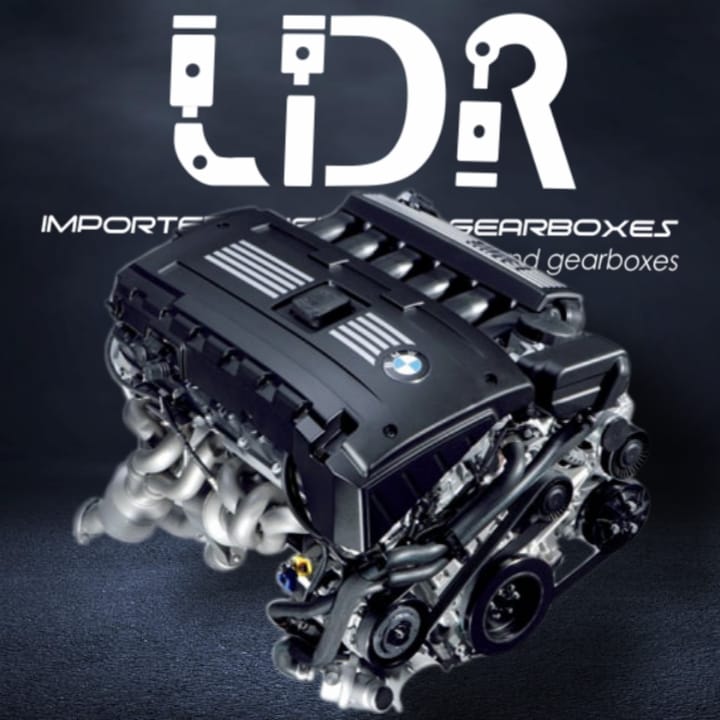BMW 318ti Evaluation: What Makes This Design Stand Apart
BMW 318ti Evaluation: What Makes This Design Stand Apart
Blog Article
Key Features to Look for When Acquiring an Engine for Automotive Applications
When thinking about the purchase of an engine for automotive applications, a number of vital features require mindful evaluation to make certain ideal performance and performance. From power and efficiency capabilities to sustain adherence, performance, and resilience to exhausts requirements, each facet plays an essential function in establishing the engine's suitability for particular vehicle demands.
Power and Efficiency
When choosing an automotive engine, customers focus on power and performance to ensure optimum driving experience and effectiveness. A well-performing engine not just provides power effectively but additionally operates smoothly throughout different rate varieties and driving conditions.
Additionally, aspects such as engine variation, crossbreed, and turbocharging modern technologies play significant functions in improving both power and performance degrees. Ultimately, selecting an engine that provides a powerful mix of power and performance guarantees a efficient and gratifying driving experience.
Gas Efficiency
Enhancing gas efficiency is a paramount factor to consider for consumers when reviewing automobile engine options. Modern engines with attributes like direct fuel injection, turbocharging, and variable valve timing can substantially boost gas efficiency by boosting burning processes and reducing energy loss.

Resilience and Integrity
Accomplishing resilient efficiency and reputable procedure is essential for customers evaluating the toughness and reliability of vehicle engines. When thinking about an engine for automobile applications, longevity describes the engine's capability to endure wear, stress and anxiety, and severe operating problems over an extensive period. Dependability, on the various other hand, implies that the engine can constantly execute its intended function without unanticipated break downs or failings.
Customers should search for engines built with high-quality materials and exact design to make certain longevity. Components such as pistons, crankshafts, and bearings ought to be long lasting to take care of the engine's power output without premature wear. Additionally, engines geared up with sophisticated cooling systems, efficient lubrication, and durable purification systems have a tendency to show greater degrees of integrity.
Normal upkeep and adherence to supplier referrals are additionally crucial consider preserving an engine's resilience and reliability. By adhering to upkeep routines, using recommended fluids, and resolving any concerns promptly, consumers can maximize the life-span and performance of their auto engines. Ultimately, prioritizing longevity and integrity in engine choice can lead to an extra gratifying ownership experience with less unanticipated disturbances.
Discharges Compliance
Making certain conformity with discharges regulations is a crucial element of examining automobile engines for environmentally aware customers. With enhancing concerns regarding air quality and ecological effect, strict exhausts standards have actually been placed in place globally to minimize hazardous toxins released right into the environment. When purchasing an engine for vehicle applications, it is necessary to consider its exhausts compliance to decrease the carbon footprint and comply with legal needs.
Modern engines are geared up with innovative emission control modern technologies such as catalytic converters, exhaust gas recirculation (EGR) systems, and selective catalytic decrease (SCR) to lower damaging exhaust gases like nitrogen oxides (NOx), carbon monoxide gas (CO), and hydrocarbons (HC) These systems play a critical function in making certain that the engine meets the defined exhausts standards and runs within permitted limits.

Cost-effectiveness
When considering automobile engine purchases, examining cost-effectiveness is vital for customers looking for both efficiency and worth. Cost-effectiveness in engine procurement involves more than just the Recommended Site initial purchase price. It encompasses the overall expenses associated to upkeep, gas consumption, and potential repairs over the engine's lifespan. Choosing an engine that offers a balance between upfront expenses and lasting savings can cause considerable benefits for the consumer.
One secret element of cost-effectiveness is fuel performance. Engines that are created to optimize fuel economic situation can bring about considerable savings with time, particularly for individuals that drive often or over cross countries. Furthermore, considering the schedule and cost of extra parts and maintenance can add to the overall cost-effectiveness of an get more engine. Making sure that maintenance and fixings are available and practical can avoid unanticipated monetary burdens down the line.

Conclusion
Finally, when buying an engine for auto applications, it is crucial to think about crucial functions such as power and efficiency, gas effectiveness, longevity and reliability, emissions compliance, and cost-effectiveness. These factors are important in guaranteeing that the engine meets the requirements of the vehicle and runs properly in numerous driving problems - bmw 318ti. Making a notified decision based upon these standards will eventually result in a successful and efficient vehicle engine purchase
From power and performance capacities to sustain adherence, effectiveness, and sturdiness to discharges standards, each facet plays a vital role in establishing the engine's suitability for specific vehicle needs. More Info Engines made to run on alternate fuels such as electric power, crossbreed systems, or biofuels can use improved gas economy and reduced emissions contrasted to traditional gas or diesel engines. Consumers must carefully take into consideration the fuel performance ratings and innovations included into auto engines to make informed investing in decisions that line up with their priorities for expense financial savings and sustainability.
When considering an engine for vehicle applications, durability refers to the engine's capability to hold up against wear, tension, and extreme operating problems over an extended duration.In verdict, when acquiring an engine for vehicle applications, it is essential to think about crucial functions such as power and performance, fuel resilience, dependability and effectiveness, emissions compliance, and cost-effectiveness.
Report this page